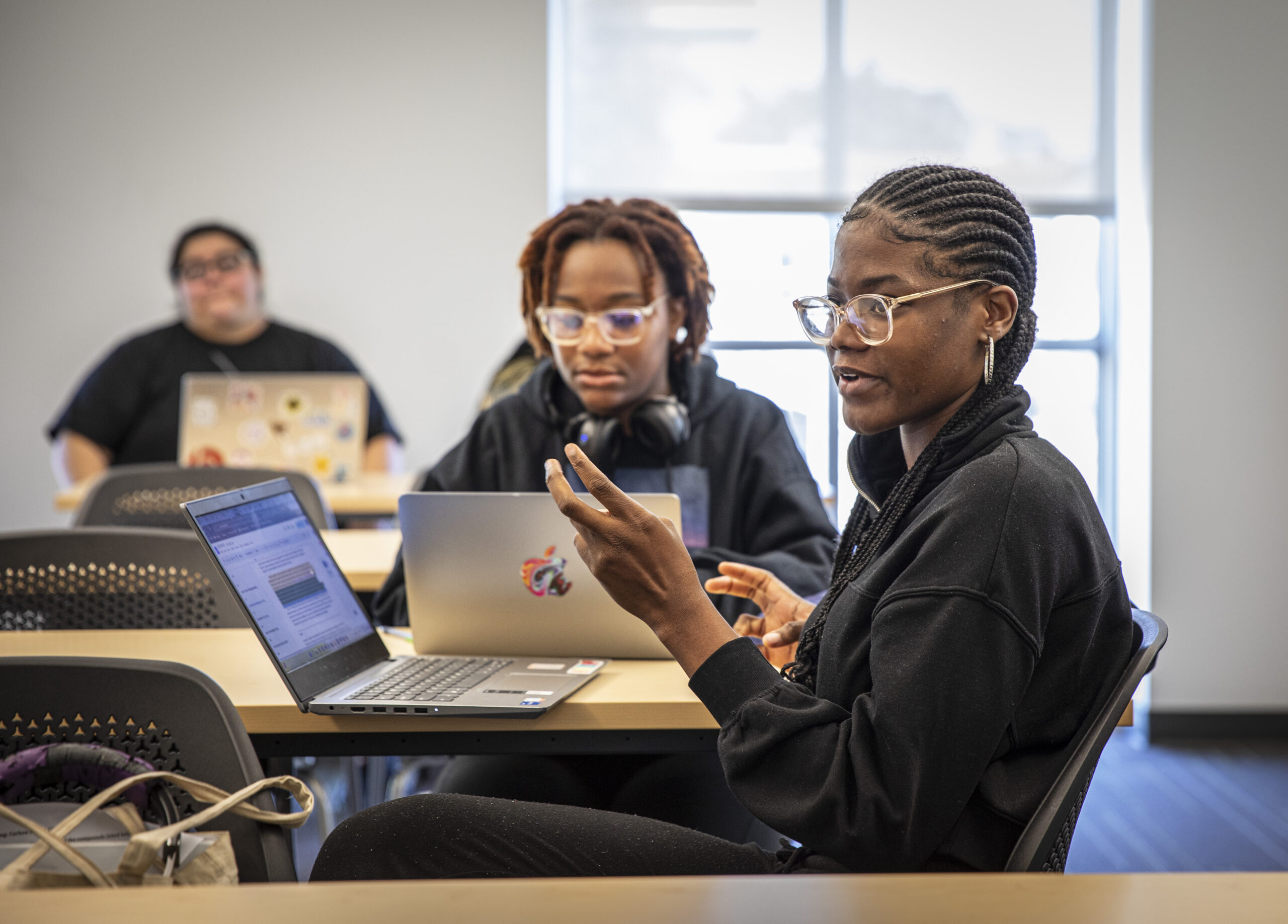
By Katia Loza
Trinity Times Correspondent
Though Trinity Washington University sophomore Millicent Okoro sees that the gender wage gap has decreased in the past century, the biochemistry major also understands that it’s remained stagnant in the past few decades and is concerned it will impact her future.
“So yeah, I am very scared that will be one of my issues or being turned down from a job I really wanted not because of my qualifications, but because I’m a woman,” Okoro told Trinity Times.
As she navigates her way through college though, Okoro believes Trinity is preparing her adequately for the challenges she might face regarding the gender wage gap.
A 2022 Pew Research Center report indicates that women earned 82% of what men earned, showing little change over the past two decades.
The wage gap also varies across racial and ethnic groups.
In 2022, Black women earned 70% as much as white men, and Hispanic women earned 65% as much. White women earned 83% as much as white men, while Asian women were closer to parity, earning 93% as much, the Pew report said.
These disparities underscore the ongoing challenges in achieving wage equality across different demographics in the U.S.
Specialists at the Institute for Women’s Policy Research suggest that expanding female involvement in higher education has been an important factor in reducing the gender wage gap since the early 20th century.
Research from the Pew Research Center also notes that the percentage of educated women ages 16 and older attaining four years of education or higher rose from 16% in 1980 to 40% by 2018. In direct correlation, women in high-analytical-skill jobs went from lagging men in college completion in 1980, by 36% to 48%, to taking the lead by 2018, at 74% to 68%.

The increase in women in high-analytical-skill jobs translated to the reduction of the gender wage gap through the integration of more women into high-skill jobs by attaining higher education, the report suggests.
As this data shows, education has had a considerable impact on the percentage of women in high-status positions in the workforce.
Salary secrecy is one reason many companies can pay women unfair wages, said Lynda Jackson, an associate professor of business administration at Trinity Washington University, and she argues that policies allowing salary concealment within organizations should be changed.
“I think that one of the top strategies would be to negotiate the policies for organizations and get them to get rid of pay secrecy,” Jackson said.
She routinely encourages women to research their jobs and be informed about how much organizations are paying their employees so they understand the wages they should be receiving.
Students at Trinity receive help from Jackson when starting their own businesses. She recommends that students seek guidance from mentors and small business administrations.
“Small business administrations have many ways that can help you build your own company and product,” Jackson said.
The use of external sources like mentoring and networking are resources Jackson recommends to reduce the effects of the gender wage gap.
Students at Trinity have many networking opportunities and access to mentors like Jackson, whom they can rely on for support in their respective fields of study.
Trinity Washington University is a historic women’s college and was established by the Sisters of Notre Dame de Namur in 1895 to give females access to higher education and professional opportunities.
In a survey conducted by Trinity in 2019, the university discovered that 95% of its graduates in the last 20 years were employed. Those who were not employed largely reported that they were caretakers for children or elders, engaged in volunteer service, or retired.
This suggests that most women graduating from Trinity enter the workforce with degrees that help them acquire the knowledge and skills needed to thrive in their fields of choice.
With the degrees earned at Trinity, the median salary for all graduates across all decades is $80,000, according to the Trinity website.
According to the U.S. Census Bureau, as of 2023, the median household income in the United States was $80,610, marking a 4% increase from $77,540 in 2022.
Hans Momplaisir, a sociology professor at Trinity, explains how girls and boys are socialized into gender roles when they are young.

“While girls are taught to be more compassionate, boys are raised to be more aggressive,” he said.
He also notes that this gender socialization causes girls to enter lower-paying fields, which impacts the salaries they end up receiving.
One of the solutions he recommends is removing the stigma surrounding women’s capabilities.
“Some of the stigmas are that women aren’t emotionally fit enough to deal with the stresses” often associated with top management jobs, Momplaisir said. “So, we need to remove those stigmas so that we view men and women equally.”
He also believes that society needs to value the work that women do and teach girls to believe in themselves and their capabilities.
“We need to raise girls to be stronger and more confident,” Momplaisir told Trinity Times.
Fortunately for Okoro, she is receiving that kind of encouragement from her professors and mentors at Trinity.
“Just seeing them tell us that we can succeed regardless of what barriers are put in place, I feel like that’s a huge pro for me going to Trinity,” she said.
Okoro also feels supported by the opportunities provided at the university.
“Trinity has Mentor Moment, which prepares us by being competitive at a national level but also an international level by equipping us with internships and opportunities to shadow people and encouraging us to try to do things that will level out the playing field for us as women,” she said.
Mentor Moments is a series of classes integrated into the undergraduate curriculum at Trinity. Each session is designed to address specific topics that support students’ success throughout their academic journey and beyond. The program includes large group meetings for all science students, providing shared experiences such as STEM (Science, Technology, Engineering, and Mathematics) career panels and alumnae discussions. Additionally, smaller groups composed of students from each academic year and a faculty member form mentor stream, fostering peer mentorship and a sense of community.
Some solutions Okoro believes could close the gender wage gap include speaking up and not settling for the wages given to women.
“Wage transparency,” she notes can be an essential tool, “which could break the gap between the secrecy in the workplace to have a more equitable society to live in.”
Experts from the Institute for Women’s Policy Research also recommend solutions like pay transparency laws, mentorship programs, and paid family leave policies to address wage disparities. These strategies aim to empower women economically and level the playing field.
Through institutions like Trinity, which see the value education holds and empowers women, there is hope that the gap will shrink, creating a society in the future that won’t hold gender as a determinant of what a person should earn.